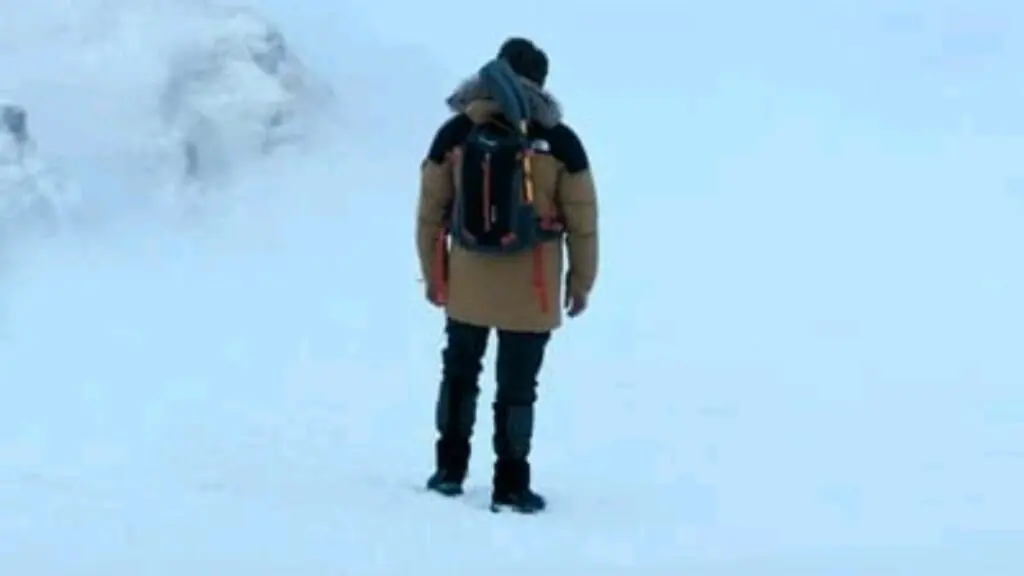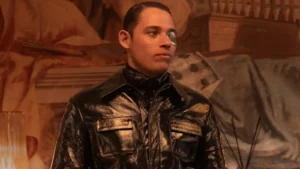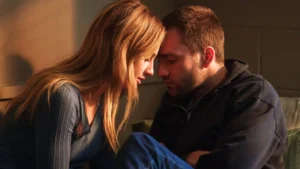Summary
The Father Who Moves Mountains is a gripping character study in obsession and redemption.
Writer and director Daniel Sandu’s film might as well have been called Picnic at Snowy Rock. A Romanian film with an ending that will be incredibly decisive for many, what you cannot argue is the intriguing character study in obsession and redemption. However the film plays out, why will many walk away thinking the story left them unfulfilled?
What you can’t argue about The Father Who Moves Mountains (Tata muta muntii) is it’s a compelling one.
The film takes place in a blustery mountain getaway. The film’s main character, Mircea (Adrian Titieni), is a divorced man about to have a baby with a much younger woman, Alina (Monstri’s Judith State).
While doing some holiday shopping, he gets a call from the local police. His son has gone missing, along with his girlfriend, while climbing a mountain and going up a restricted path. When he arrives, he is greeted by the local rescue squad (Valeriu Andriuta).
Things look bleak, he tells him. The snow is coming down. It has been at least two days since anyone has heard from the couple. And the temperature drops every minute.
A wrinkle thrown into the script is Mircea is a former Romanian intelligence officer. He is now feeling regretful about how he left his family years prior. How, even after briefly reuniting with his son, he sounded, finally, happy. He didn’t know he had a girlfriend.
He surmises that this must have been the reason for whatever was bringing joy to his life. So, he calls an old colleague, Filip (Tudor Smoleanu), to bring in advanced, and highly illegal, intrusive equipment to search for them. This is the only way to make up to his son and ex-wife, Paula (Elena Purea), for abandoning them years before.
Sandu’s film plays with themes of obsession and redemption. As the days grow longer and darker, Titieni’s Mircea becomes relentlessly obsessive while everyone else wants to wait for the snow to melt in the spring.
A cold thought, I’m sure. But think of the loss of humanity we have seen from people the past year—the lack of empathy for social justice and fellow human beings killed for the pigmentation of their skin. Many lack compassion for our fellow man by refusing to wear masks or be vaccinated. Spreading a deadly virus that could kill someone with a single breath.
A scene in Mountains that illustrates this perfectly, as Micrea continues descent after descent up the mountain up a gondola, many curse him and call him names for wanting to be the first up to search for his child. How selfish can one person be, they ask.
There is also as much mistrust in the Romanian government as the ones in the United States. For instance, Mircea is approached by a woman who is concerned for her child. (Another group of kids became lost up the mountain. They need to do something about these trails).
He utterly refuses to help them. Word gets back to the media covering the missing. Of course, this is where the morality of the script comes into play. When do you stop searching? Why do some get help, and others do not?
The Father Who Moves Mountains may not rack up as much tension as one would think. It trades it away for a narrative about not how far you would climb but how much you may endanger your future for a cause as bleak as one can be. That’s what makes Sandu’s film so gripping—watching when and how multiple characters have their breaking point where they give up. How far would you go?




